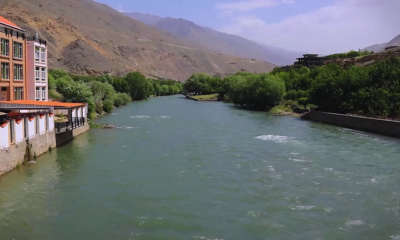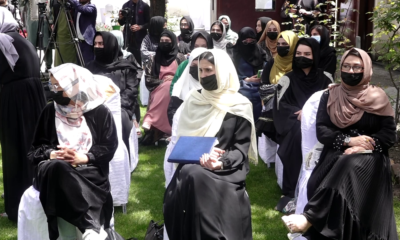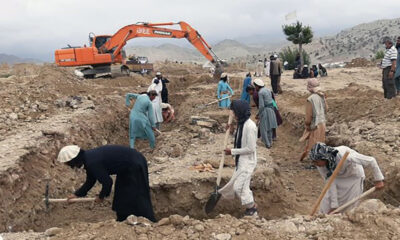Latest News
Quake death toll rises to over 2,000 as magnitude of tragedy sets in
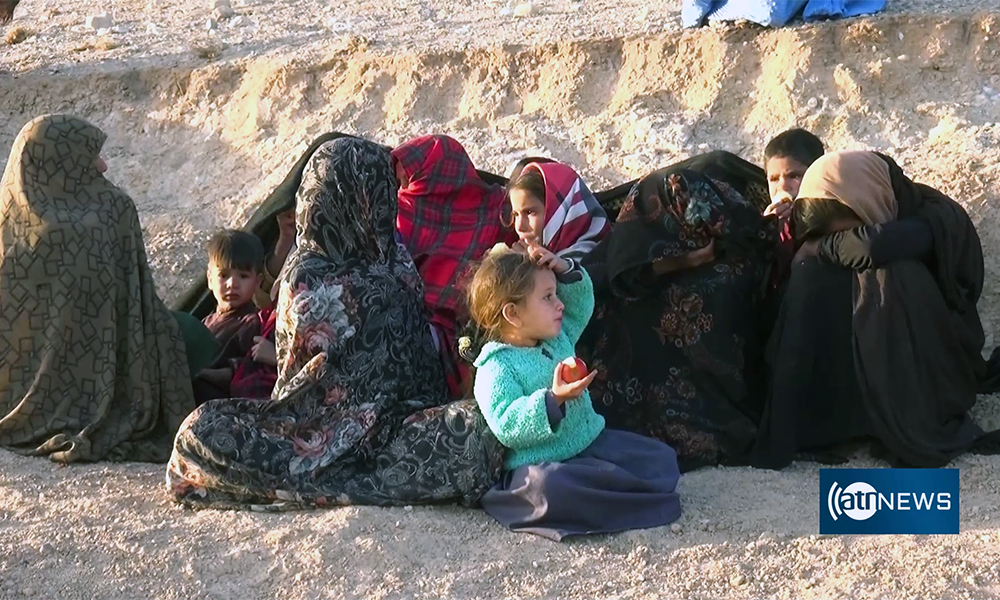
Mohammad Janan Saiq, the spokesperson for Afghanistan’s Ministry of Disaster Affairs said Sunday at around midday that so far 2,053 people have been confirmed dead in 13 villages in western Herat province after the 6.3 magnitude earthquake that hit on Saturday.
A further 1,240 people were injured, at least 1,320 houses were completely destroyed in Zinda Jan and Ghorian districts and 10 rescue teams have been sent to the worst hit areas.
Drinking water, food, medicine, clothing, and other necessary items are being sent to the victims, Saiq said.
Other official sources have however said as many as 10,000 people were injured.
Rescue teams along with local men are working to pull out the dead and injured trapped under the rubble.
“Three villages in Herat province were completely destroyed, and hundreds of people are still trapped under the debris,” Saiq said.
According to the US Geological Survey (USGS), strong earthquakes of magnitude 5.5, 5.9, and 6.2 and 6.3 jolted the western Afghanistan. Afghan provinces. The epicenter was 40 kilometers northwest of Herat city in Zinda Jan district.
On Sunday, people were using their bare hands to dig out the dead and injured. One video, shared online, shows people freeing a baby from a collapsed building. A hand is seen cradling the baby’s torso as rescuers ease the child out of the ground. Rescuers said it was the baby’s mother.
Abdul Wahid Rayan, a spokesman at the Ministry of Information and Culture, said Sunday the death toll is higher than originally reported. Villages have been destroyed, and hundreds of civilians are buried under the debris, he said while calling for urgent help.
“Besides the 2,060 dead, 1,240 people are injured and 1,320 houses are completely destroyed,” said Rayan. At least a dozen teams have been scrambled to help with rescue efforts, including from the military and nonprofit organizations like the Red Crescent.
The United Nations migration agency has deployed four ambulances with doctors and psychosocial support counselors to the regional hospital. At least three mobile health teams are on their way to the Zenda Jan district, which is one of the worst affected areas.
Doctors Without Borders set up five medical tents at Herat Regional Hospital to accommodate up to 80 patients. Authorities have treated more than 300 patients, according to the agency.
Irfanullah Sharafzai, a spokesman for the Afghan Red Crescent Society, said seven teams are busy with rescue efforts while other teams are arriving from eight nearby provinces.
“A temporary camp has been set up for people who have lost their houses and need shelter for now,” Sharafzai said. “Whatever is in our capacity we will do for our poor and needy people at this difficult time.”
Neighboring Pakistan said it was deeply saddened by the earthquake. “We are in contact with the Afghan authorities to get a first-hand assessment of the urgent needs of those affected by the earthquake,” said the Foreign Affairs Ministry. “Pakistan will extend all possible support to the recovery effort.”
Latest News
Panjshir to Kabul water conduit project ‘waiting for budget approval’
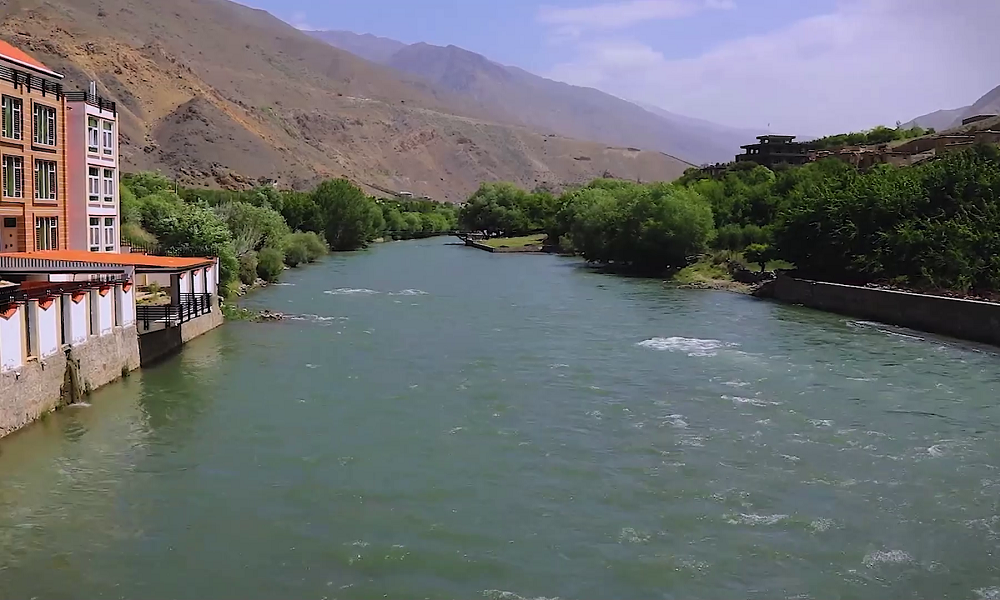
Afghanistan’s Ministry of Energy and Water is waiting for budget approval on the much-needed Panjshir to Kabul water conduit project – which, once completed, will alleviate the severe water shortage crisis in the capital.
Matiullah Abid, spokesperson for the Ministry of Energy and Water, confirmed the initial phase of reviewing and planning of the project is complete and construction work will start as soon as the budget has been approved.
Abid said the aim of the project is to help reduce water shortage issues in Kabul..
“The survey, design, and technical studies of the Panjshir water transfer project have been completed by the Ministry of Energy and Water, and the project [budget] has been sent to the leadership of the Islamic Emirate for approval,” he said.
“This project will commence once it is approved and the budget is available.”
The water conduit project will cover a distance of over 200 kms starting in Bazarak in Panjshir and ending in Tarakhail in Kabul.
Residents of Kabul have welcomed the plan and said once complete the additional water will help alleviate the drinking water crisis.
Experts meanwhile believe that this project could help Kabul’s groundwater levels to improve.
“I believe that the Panjshir water transfer project will help replenish underground water sources once again, and the people will have access to clean and healthy water. Additionally, with the transfer of Panjshir water, the agricultural lands around Kabul will also be managed with water, which, in turn, will create job opportunities for the people,” said Abdul Nasir Reshtia, an economic expert.
The plan to transfer water from the Panjshir River to Kabul was designed in 2012. In the 2020 budget of under the previous government, around $5 million was allocated for the annual transfer of 100 million cubic meters of Panjshir River water to Kabul.
The project was expected to be completed by 2023 but never got off the ground until the Islamic Emirate takeover.
Latest News
Female journalists complain about lack of access to accurate and timely information
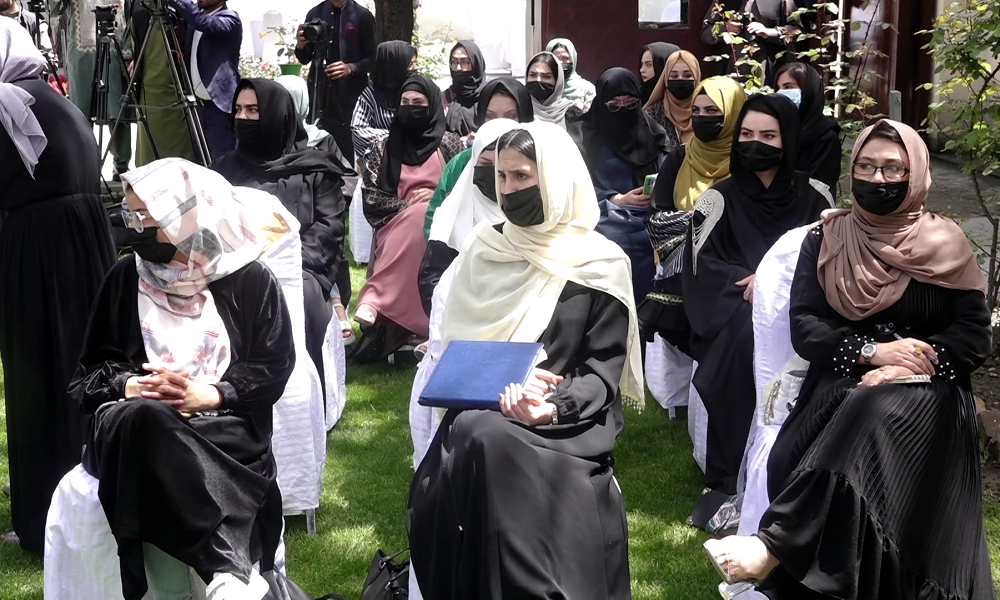
A number of female journalists say the lack of access to accurate and timely information leads to numerous challenges in their course of work.
According to some of these journalists, certain officials of the Islamic Emirate often refuse to provide information to female journalists, which creates a significant obstacle in fulfilling their professional duties.
One female journalist said: “Unfortunately, we have been subjected to intimidation by some institutions and media outlets, which hinders our work. In this regard, we urge our own media and various institutions to support female journalists the same way they support male journalists, and to allow us to continue our work.”
It is also reported that cultural and social restrictions make it difficult for female journalists to carry out their activities.
Female journalists have added that their exclusion from the media not only weakens freedom of speech but also deprives society of the perspectives and experiences of half of its population.
However, some media support organizations emphasize that the working conditions for female journalists have improved compared to last year, and currently, 745 female journalists are working in various media outlets across the country.
“The number of female journalists has increased compared to last year. Currently, 745 female journalists are working in the media. Last year, the number was 601,” said Hujjatullah Mujaddidi, head of the Afghanistan Independent Journalists Union.
Meanwhile, the Ministry of Information and Culture has stressed that the current media situation is favorable, and the ministry is committed to supporting journalists and media outlets in various sectors.
Since the IEA’s takeover in August 2021, many female journalists have lost their jobs, and some have been forced to leave the country.
Latest News
Pakistan ‘extends’ deadline for a week for Afghans to leave the country

The Pakistan government has pushed out the deadline to next week for hundreds of thousands of Afghan refugees to return to their country due to Eid al-Fitr.
AFP reported that a government official said on condition of anonymity that “the deadline has been extended until the beginning of next week due to Eid holidays.”
In early March, Islamabad announced a March 31 deadline for Afghans holding certain documentation to leave the country.
Afghans holding Afghan Citizen Cards (ACC) — issued by Pakistan authorities and held by 800,000 people, according to the United Nations — face deportation to Afghanistan after the deadline.
More than 1.3 million Afghans who hold Proof of Registration (PoR) cards from the UN refugee agency, UNHCR, are also to be moved outside the capital Islamabad and neighbouring city Rawalpindi.
On Friday, Pakistan’s Federal Interior Minister Mohsin Naqv chaired a high-level meeting to review the repatriation process of ACC holders.
He stated that continuous coordination is being maintained between the federal and provincial governments regarding the repatriation process, and the federal government will provide full support to the provinces.
Additionally, a committee has been formed based on the recommendations of the Chief Minister of Khyber Pakhtunkhwa, he said.
Naqvi also stated that Pakistan’s Minister of State for Interior Tallal Chaudhry will visit the provinces to resolve any issues arising during the repatriation process.
In addition, all arrangements for the repatriation of Afghan Citizen Card holders have been completed, Naqvi said, adding that a door-to-door awareness campaign is underway, and the mapping of Afghan Citizen Card holders has been finalized.
Holding centers, food provisions, and healthcare facilities have also been arranged for those returning, he said.
-

 Latest News5 days ago
Latest News5 days agoMore than 70,000 Afghans returned home in third week of March: IOM
-

 Health5 days ago
Health5 days agoGlobal organizations warn of health crisis due to aid cuts in Afghanistan
-

 International Sports5 days ago
International Sports5 days agoChennai grapple with IPL home truth after Bengaluru defeat
-
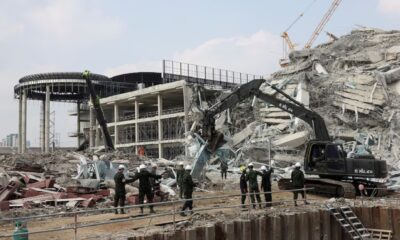
 World5 days ago
World5 days agoMyanmar quake death toll nears 700 as international aid starts to arrive
-

 World3 days ago
World3 days agoMyanmar quake death toll hits 1,700 as aid scramble intensifies
-

 Sport4 days ago
Sport4 days agoIPL 2025: Gujarat Titans beat Mumbai Indians by 36 runs
-
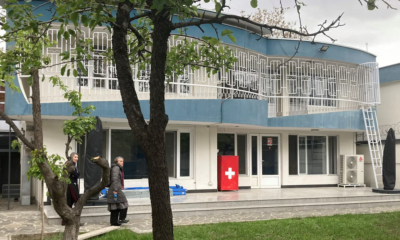
 Latest News2 days ago
Latest News2 days agoSwitzerland re-establishes presence in Kabul with humanitarian office
-
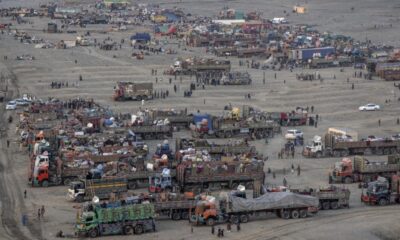
 Latest News3 days ago
Latest News3 days agoPakistan plans to expel 3 million Afghan refugees this year


